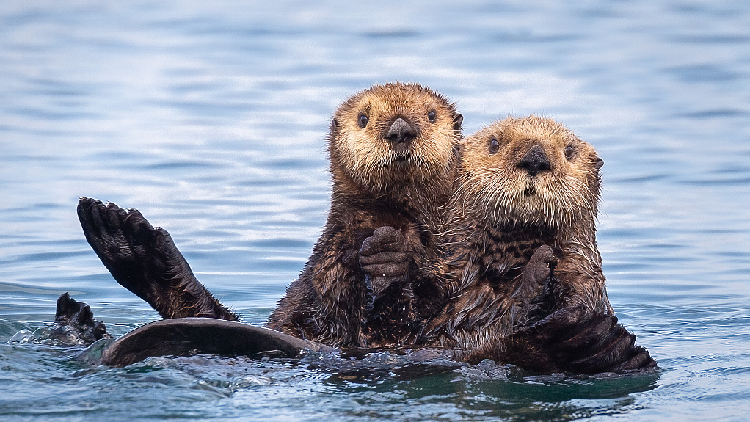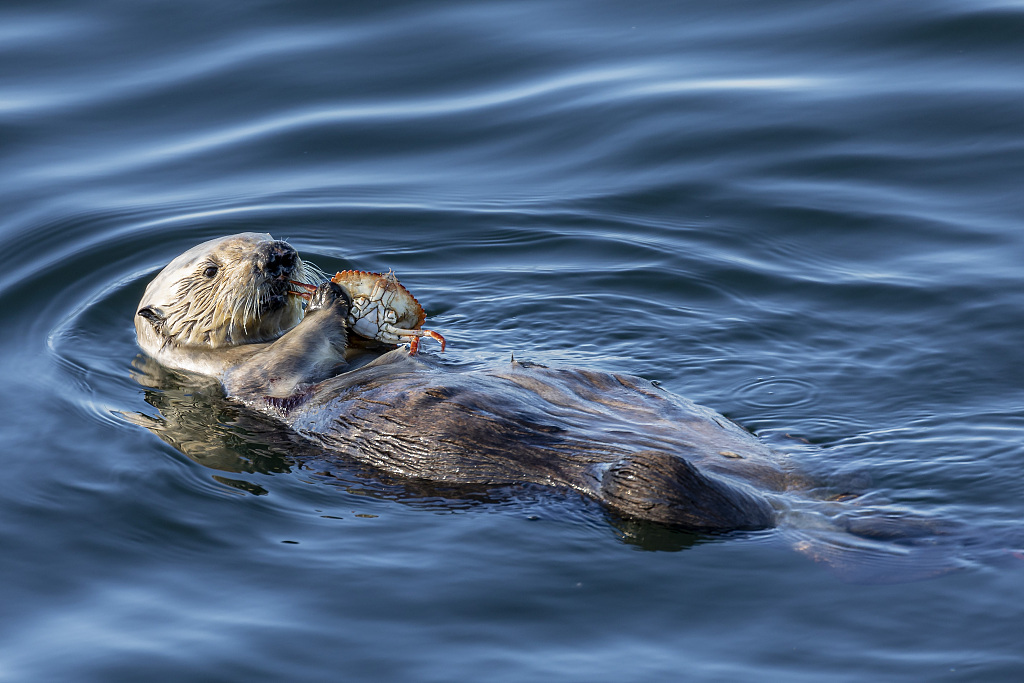Return of hungry sea otters protects key coastal ecosystem: study
Return of hungry sea otters protects key coastal ecosystem: study

Back from the brink of extinction, sea otters in central California of the United States have started restoring the degraded landscape of a key estuary - thanks to their insatiable appetite for crabs, according to a study published on Wednesday.

The research depicts the ripple effects of the sea otters' return to Monterey Bay, California, highlighting how successful conservation efforts can improve the health and resilience of whole ecosystems.
Once hunted for their fur to the verge of local extinction, sea otters have made a dramatic recovery in central California after more than four decades of extensive conservation efforts in the region.
The otters have returned to coastal kelp forests and the salt marsh-dominated coastal estuary, Elkhorn Slough.
And their return has heralded wide-ranging improvements around the estuary, a critical habitat that protects the shoreline.
In a new paper published in Nature, scientists in the United States and Canada found that the marine mammal slowed the erosion of parts of the estuary by up to 90 percent between the time they recolonized the area in the mid-1980s and 2018.
"One of the most remarkable things about this is that it's truly a conservation success story," said study author Christine Angelini, director of the Center for Coastal Solutions at the University of Florida.
Previous studies on salt marshes have shown the physical and chemical explanations for erosion.
But this study points a pincer at another culprit - the shore crab.
These abundant crabs eat plant roots, burrow into the salt marsh soils and eventually can cause erosion and even collapse.
Sea otters eat around 25 percent of their body weight every day and researchers said they have an especially large appetite for these crabs.
"After a few decades, in areas the sea otters had recolonized, salt marshes and creek banks were becoming more stable again, said lead author Brent Hughes, associate professor of biology at Sonoma State University, in a statement. This was "despite rising sea levels, increased water flow from inland sources, and greater pollution".
"It would cost tens of millions of dollars for humans to rebuild these creek banks and restore these marshes," said study author Brian Silliman, professor of Marine Conservation Biology at Duke University.
"The sea otters are stabilizing them for free in exchange for an all-you-can-eat crab feast."
(Cover image via CFP)
Find more stories on the environment and climate change on TROIB/Planet Health












